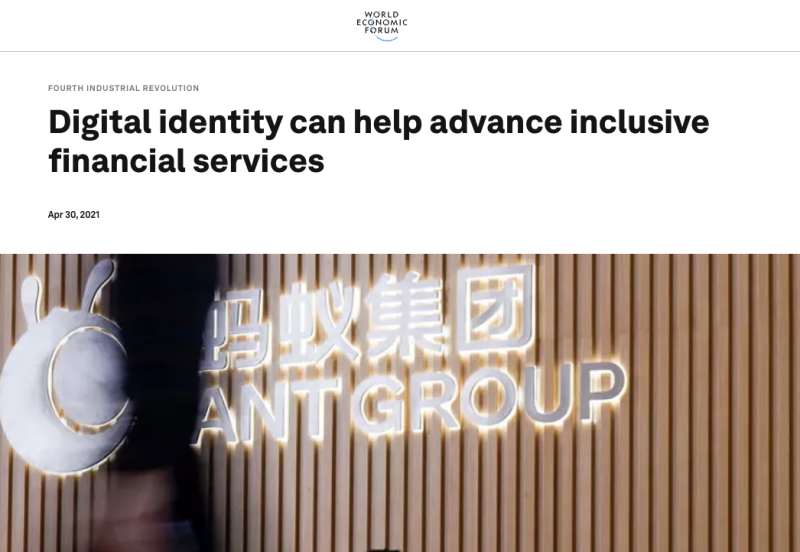
Sunak’s wife is a foreign citizen with a shareholding in the WEF-linked company.
Former British finance minister Rishi Sunak – a frontrunner to become Britain’s next Prime Minister – has family ties to a technology partner of the World Economic Forum that has advocated for a Chinese Communist Party-style economy complete with trackable, digital identities and currency.
Sunak, who topped the second round of voting by Conservative Members of Parliament (MP) in the Tory leadership race on July 15th following Boris Johnson’s resignation, is widely considered the “neoliberal” or “globalist” candidate.
The father of Sunak’s wife Akshata Murthy is the founder of Infosys, an Indian information technology company that provides services to a host of Fortune 500 companies and banks. One of the company’s leading services is Finacle, a digital banking platform. Murthy remains a foreign citizen with “non dom” i.e. non UK tax-paying status despite her husband’s work as Britain’s most senior finance chief, and expectation of becoming Prime Minister.
Infosys is listed as an official partner of the World Economic Forum (WEF), which has been accused of seeking to develop the technological infrastructure to implement a global “social credit score” system.
Social credit scores have been used by authoritarian regimes to deny rights and restrict the movements of individuals who fail to comply with diktats. For the World Economic Forum, social credit priorities would likely focus on left-wing social issues like climate change, diversity, and equity.
Klaus Schwab’s Candidate.
Far from being a silent partner, InfoSys has earned praise from the WEF, being dubbed a “global leader in next-generation digital services and consulting.”
“With three decades of experience in managing the systems and workings of global enterprises, it steers clients through their digital journey by enabling them with an artificial intelligence-powered core that helps prioritize the execution of change…”
– WEF on the Sunak-linked InfoSys
Several Infosys executives have also contributed articles to the WEF website, including the company’s Global Head, President, and Chief Compliance Officer.
Infosys President Mohit Joshi has penned articles for the site in favor of digital banking, which provides the technological framework for the “social credit score” system the WEF has come under scrutiny for attempting to effectuate across the world.
Joshi echoes these sentiments in an article for the WEF from August 2020: “Why it’s time to take central banks’ digital currencies seriously.”
“What is clear is that the crisis of COVID-19 presents many challenges – but also a unique opportunity to rethink how money is managed and used in our society,” he asks.
“There also credible concerns that paper money can transmit the virus,” he claimed before asking:
“Who then can blame the People’s Bank of China (PBOC) when it announced in February that it would be destroying cash collected in high-risk environments, such as public transport, markets or in hospitals?”
“Digital currencies could remove the cumbersome operational and security apparatus which surround conventional forms of money transmission,” continues his article, before claiming “there are political and social benefits as well.”
China’s Candidate.
“The potential for China here is immense. If the e-RMB is adopted broadly as a system to streamline trade and reduce risk, China could become the world’s trade banker, as well as its factory. Yet the bigger goal for China is actually more local, and relates to financial inclusion. Digitising the RMB will grant access to financial services to hundreds of millions of citizens, including some of the most disadvantaged. This benefit is something that can be applied to any country across the world,” continues the article, which also revealed that Infosys is contributing to digitization efforts.
Another op-ed by Joshi – “Digital identity can help advance inclusive financial services” – advocates for granting every person a “unique digital identity” to conduct financial transactions. He points to the Chinese Communist Party as a successful example of this policy:
“The Chinese government in Zhejiang Province has developed an “enterprise digital code” for just this purpose, responding to small and mediums banks (SMBs) with easy-to-access financial resources. MYBank, a subsidiary of Ant Financial, the Chinese Big Tech firm, collaborates with the Chinese government through this scheme to provide cheap loans and other financial products to SMBs.”
He also calls for the creation of a “digital stability board” to regulate all payments.
“This “digital stability board” would give members the platform to share best practices and monitor risks in digital commerce and health care, for instance. With this board in place, data trusts could be built to manage individuals’ and SMBs’ data,” he explains.

Infosys is also a member of the WEF’s Partnering Against Corruption Initiative (PACI), which includes cross-industry representatives from the world’s largest corporations. The National Pulse recently exposed how the initiative, which purports to fight for transparency in business practices, is the former CEO of Reuters who now serves as a board member at COVID-19 vaccine maker Pfizer.
Its leaders are also involved with different WEF sub-groups, such as the Global Head of Sustainability and Design Consulting Services Corey Glickman, who is a member of the WEF Pioneer Cities working group.
Sunak himself has a history of being soft on China, telling the Telegraph that he wanted a “complete sea change” in relations with the Chinese Communist Party in favor of increased trade ties and economic collaboration. China, in turn, has endorsed Sunak’s candidacy.
